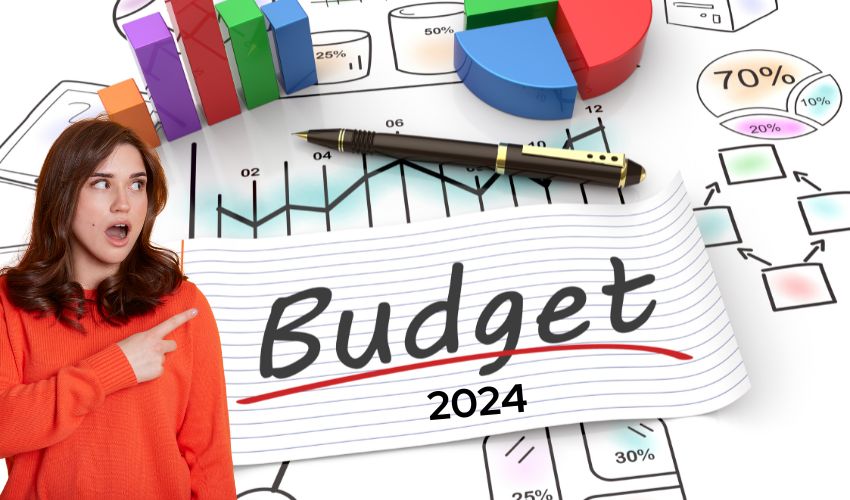A lot of speculation and anticipation go on during the release of Budget 2024. It influences different levels of people in society, starting from the working class, business owners, policymakers, etc. Budget 2024 was presented on 10 October 2023, summarising a spending package of € 14 billion that included various sectors.
If you are someone who is looking ahead to optimize the financial opportunities this year, a review of the budget is a must. For example, you are mapping out different avenues to cope with financial emergencies, especially when your cash reserve does not have adequate money. You may want to consider the borrowing angle by analyzing how getting fast loans in Ireland can influence your finances.
For this reason, you must take note of the possible interest rates you have to accept to access the necessary funds. Information on how the lending industry might work will be easy for you to understand once you review this budget decided for 2024.
This way, you can understand the government’s spending strategy, taxation and borrowing for this year. You can review its economic influence, which also concerns your financial condition.
Flip through this blog to dive deeper into the various aspects of the budget for this present year and its implications on your daily life.
Budget 2024: Its impact on your finances
It shows the financial roadmap decided for this specific financial year. The employment sector is also an integral part of the budget presentation. All the strategies and policies will come into action in this present year. Thus, you must recognize its significance in improving your financial condition.
Taxation
The budget announcement shows the value of the tax package to be € 1.3 billion. This is about € 800 allotted for individual workers. The income tax credit will go from € 100 to € 1875 according to the budget.
As you can notice, there will not be a steep change in the tax rates. This will be a huge relief for taxpayers. For families looking for financial support to raise a child, the government has decided to increase the home credit tax credit, single personal child carer credit and incapacitated child tax credit.
The Universal Social Charge band will increase from the previous cap of 2%. This is going to alleviate the financial pressure on taxpayers. On the other hand, the USC for any person who is holding a medical card holder will go down. This should be followed until December 2025, thereby removing the financial burden from the shoulders of lower-income families.
For mortgage holders
You must state the unique mortgage interest tax comfort has been introduced. It will be applied for homeowners handling an outstanding mortgage between € 80,000 and € 500,000. You can avail of this exemption if you have bought the primary house by 31 December 2022.
Homeowners can receive a 20% tax exemption on the increased interest amount that they have paid in 2022 as compared to 2023. Therefore, per property, it is capped at € 1,250. A special plan introduced by Paschal Donohoe facilitates “payment wherever necessary” through the Department of Social Protection.
For businesses
Businesses will be happy to know that the budget has announced a one-off Increased Cost Of Business scheme, i.e. ICOB. These are aimed at helping ventures who want to handle their finances in a better way. The final implementation of this scheme is yet to occur this year.
There will be a massive jump from 20% to 30% on the qualifying R&D expenditure as a tax credit. This helps in encouraging advancement in innovation and technology. There is provision for start-ups for decreased CGT that will be helpful for the growth of these types of ventures in the upcoming time.
For housing-related concerns
The tax for rental purposes is going to increase from € 500 to € 750. If you are someone who is paying the price for full accommodation of their child who is currently studying, you can now claim the credit. The documents can be backdated for claims in 2022 and 2023.
Landlords can take advantage of the tax break from € 600 to € 1000. This value will increase until 2027 based on their length of stay in this market. It means the landlord should get an additional amount of € 600 on the income of € 3000, which will increase to € 4000 in 2025.
Therefore, the overall benefit can be around € 800 and quickly become € 1000 the next year. The income for the subsequent years will remain € 5000. Beware if you have a vacant property, as the tax worth will increase, and the range can vary from three to five times as per the local property tax rate.
There is an extension for the Help-to-Buy scheme until 2025. This reform has been done to ensure that the applicants can make affordable purchases with the help of the local authority.
The budget has allowed a review of the maps alongside more cooperation by extending the Residential Zoned Land Tax Liability date. You can meet it within a year by expecting more involvement.
Cost related to energy consumption
As per the budget announcement, every household should pay € 150 as energy costs from the end of this year to April of next year. This amount accounts for a single instalment, and this should be cleared off in 3 instalments.
It must have started in December last year, followed by January and March. Domestic consumers of electricity can avail of a subsidy of € 450 on their energy bills.
The bottom line
Surplus funding of €800 has been released for the health sector. It will mainly focus on ensuring the well-being of the ageing and elderly population. There will be a reduction of 20% in transport fares, which will be applicable for another year.






